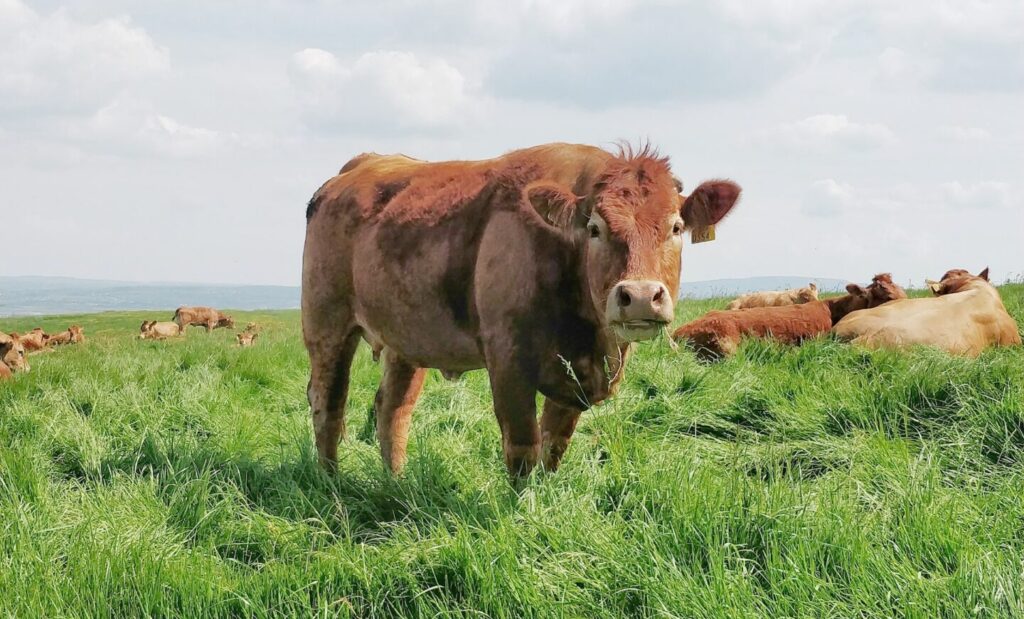AGRIFOOD
AGRIFOOD
ABOUT THE INDUSTRY
In the landscape of industries, the AgriFood sector stands out as a pivotal player with significant importance. It combines agriculture and food production, encompassing everything from growing and harvesting to distribution and consumption. Its global economic impact is immense, influencing people across continents and various sectors.
In this overview, we emphasize key aspects that highlight the AgriFood sector’s significance. Its vast scale makes it vital, providing essential nourishment for humanity. Through innovation and technology, the industry has evolved, introducing modern farming techniques, precision agriculture, and sustainable sourcing. With concerns about food security, sustainability, and the environment, the AgriFood sector plays a crucial role in addressing these challenges.
This diverse sector includes crop cultivation, animal husbandry, food processing, distribution, and retail. Understanding each step of this intricate process is essential. Given its global nature, awareness of international regulations, trade dynamics, and cultural factors is crucial.
With its impact on economies, societies, and ecosystems, it demands strategic insights, innovation, and collaboration. At Pistisus Consulting, we’re ready to guide you through the complexities of the AgriFood landscape, helping you navigate challenges and discover new growth opportunities.
TRENDS AND CHALLENGES
Pistisus Consulting excels in addressing challenges. Our experienced consultants understand the AgriFood industry, enabling us to create strategies that incorporate sustainability, manage risks, and enhance efficiency. Staying updated on trends positions us to guide clients effectively.
The AgriFood industry is changing rapidly due to trends. Consumer demand for sustainable and local products is growing. Technology like precision agriculture and data insights is transforming farming. Alternative proteins and plant-based diets are also reshaping the food supply chain.
While opportunities arise, challenges persist. Ensuring global food security while minimizing environmental impact is complex. Climate change and resource scarcity affect crops and supply chains. Balancing demand with eco-friendly practices is challenging. Meeting stringent food safety regulations and maintaining transparent supply chains require ongoing attention.

TRENDS AND CHALLENGES
Pistisus Consulting excels in addressing challenges. Our experienced consultants understand the AgriFood industry, enabling us to create strategies that incorporate sustainability, manage risks, and enhance efficiency. Staying updated on trends positions us to guide clients effectively.
The AgriFood industry is changing rapidly due to trends. Consumer demand for sustainable and local products is growing. Technology like precision agriculture and data insights is transforming farming. Alternative proteins and plant-based diets are also reshaping the food supply chain.
While opportunities arise, challenges persist. Ensuring global food security while minimizing environmental impact is complex. Climate change and resource scarcity affect crops and supply chains. Balancing demand with eco-friendly practices is challenging. Meeting stringent food safety regulations and maintaining transparent supply chains require ongoing attention.
PLAYERS IN THE INDUSTRY
Significant players shape the AgriFood industry. Agribusiness giants like Cargill and ADM cover raw materials to distribution. Nestlé and Danone innovate in consumer goods, focusing on nutrition and sustainability. Startups like Beyond Meat and Impossible Foods are changing protein sources.
In technology, John Deere and Trimble provide precision tools for farmers, and platforms like Agrible offer data insights. Syngenta and Bayer Crop Science drive agricultural innovation. Walmart and Tesco dominate the retail sector, influencing product demand and supply chains.
Pistisus Consulting, with its industry knowledge, acts as a bridge between players and your success. With an extensive network and industry insight, we provide a holistic perspective. As partners, we help you navigate the competitive landscape and foster collaboration across the AgriFood value chain.
REGIONAL INSIGHTS
The AgriFood industry’s nuances across Europe are marked by distinct insights and differences that shape business strategies. The diversity of climates and cultures from the Mediterranean South to the Baltic North impacts the types of crops cultivated and livestock raised. Countries like Spain, Italy, and Greece benefit from longer growing seasons, fostering the production of high-value fruits and vegetables. Conversely, the cooler climates of Sweden, Finland, and Norway promote hardy crops and specialized animal husbandry.
Furthermore, policy variations across the European Union (EU) member states influence trade, regulations, and subsidies. For instance, France is celebrated for its robust agricultural traditions, with a focus on wine, dairy, and luxury products. Germany, the EU’s agricultural powerhouse, boasts advanced mechanization and diverse agricultural outputs. Eastern European nations, including Poland and Hungary, are emerging as crucial grain producers. Navigating these disparities while adhering to EU standards requires an astute grasp of regional dynamics.
At Pistisus Consulting, we recognize the need to illuminate the unique challenges and opportunities that characterize the European AgriFood landscape. The agricultural disparities between Southern and Northern Europe necessitate tailored approaches. Our team’s localized knowledge allows us to guide clients in Spain’s olive oil sector toward maximizing quality and sustainability, just as we assist Scandinavian stakeholders in optimizing cold-resistant crops.
Understanding Europe’s regulatory intricacies is key. We offer strategic counsel on navigating the Common Agricultural Policy (CAP) and its implications for subsidies and sustainability. For businesses looking to expand across borders, we offer insights into harmonizing labeling and packaging to satisfy diverse consumer preferences.
Through engaging consultations and data-driven analyses, we ensure our visitors comprehend the spectrum of challenges and prospects that unfold across the continent. By embracing the nuanced realities of AgriFood business in Europe, we enable our clients to seize opportunities, mitigate risks, and chart a course toward success.
The AgriFood landscape in Asia is a tapestry of unique insights and differences that profoundly influence business strategies. The vast expanse from China to India encompasses an array of climates, cultures, and agricultural practices. Countries like Thailand, Vietnam, and Indonesia thrive in tropical environments, cultivating tropical fruits and rice as staples. In contrast, the temperate climates of Japan and South Korea facilitate advanced horticulture and precision farming.
Cultural preferences also play a pivotal role. India’s reverence for vegetarianism shapes demand for plant-based proteins, while China’s growing middle class drives demand for protein-rich foods. The diverse agricultural practices, including tea cultivation in Sri Lanka and seafood farming in Bangladesh, demonstrate the breadth of opportunities and challenges within the region.
Pistisus Consulting is committed to illuminating the distinctive challenges and opportunities that characterize the Asian AgriFood sector. Our consultants, rooted in local expertise, guide clients toward tailored solutions. In Southeast Asia, we assist palm oil producers in Indonesia to navigate sustainable practices amid environmental concerns. For Japan’s sophisticated market, our strategies facilitate the integration of advanced technology into traditional farming methods.
Understanding the regulatory landscapes is paramount. Our insights into China’s evolving food safety regulations enable businesses to enter the market while ensuring compliance. Similarly, we offer counsel on tapping into India’s agricultural subsidies to promote sustainable practices.
Through interactive sessions and targeted analyses, we ensure our visitors gain a comprehensive understanding of the intricate challenges and potential rewards embedded in Asian AgriFood markets. By embracing the diversity and dynamics of the region, Pistisus Consulting empowers clients to capitalize on emerging trends, navigate complexities, and achieve sustainable growth.
The AgriFood landscape in Africa is a mosaic of specific insights and differences that profoundly shape business dynamics. From the vast Sahara Desert to the fertile plains of the Nile Delta, the continent’s diversity of ecosystems influences agricultural practices and productivity. Nations such as Ethiopia, Kenya, and Nigeria boast varied climates, fostering crops like coffee, tea, and cocoa. In contrast, arid regions like Chad and Mali rely on drought-resistant crops such as millet and sorghum.
Cultural factors also contribute to the uniqueness of Africa’s AgriFood sector. Traditional practices coexist with modern methods. Countries like Ghana and Ivory Coast lead the world in cocoa production, while Egypt’s millennia-old irrigation techniques continue to influence farming along the Nile.
At Pistisus Consulting, we are dedicated to conveying the distinct challenges and opportunities embedded within Africa’s AgriFood industry. Our seasoned consultants, versed in local intricacies, provide tailored strategies. In South Africa, we assist wine producers in optimizing vineyard practices amidst water scarcity concerns. For Uganda’s burgeoning coffee industry, we offer insights into sustainable practices that resonate with global consumers’ preferences.
Understanding the regulatory environment is paramount. Our grasp of Nigeria’s evolving trade policies guides businesses in expanding their footprint while adhering to compliance standards. Similarly, we offer counsel on tapping into Kenya’s growing agribusiness ecosystem by aligning with the nation’s Big Four Agenda.
Through immersive workshops and contextual analyses, we ensure that our visitors attain a comprehensive grasp of the nuanced challenges and untapped potential inherent in Africa’s AgriFood markets. By embracing the continent’s rich diversity and embracing its opportunities, Pistisus Consulting equips clients to navigate complexities, foster sustainable growth, and create a lasting impact on African communities.
The AgriFood landscape in Latin America is a rich tapestry of unique insights and differences that significantly influence business dynamics. Spanning from Mexico’s arid deserts to Argentina’s fertile pampas, the region’s diverse climates shape agricultural activities. Countries like Brazil, known for vast rainforests, excel in tropical crops like coffee and sugarcane. Meanwhile, Chile’s temperate climate fosters high-quality wine production and fruit exports.
Cultural variations also contribute to the vibrancy of Latin America’s AgriFood sector. Traditional practices intermingle with modern innovations. Coffee-producing nations such as Colombia and Honduras showcase the historical significance of coffee in their economies, while Uruguay and Paraguay emphasize beef exports with extensive grazing lands.
Pistisus Consulting is resolute in conveying the distinct challenges and opportunities inherent in Latin America’s AgriFood industry. Our adept consultants, with their deep local insights, offer customized strategies. In Argentina, we guide stakeholders in optimizing soybean production through sustainable practices amid concerns about deforestation. For Peru’s quinoa industry, we provide guidance on entering international markets while preserving the crop’s cultural significance.
Understanding regulatory landscapes is essential. Our grasp of Mexico’s evolving trade agreements enables businesses to navigate export complexities while ensuring compliance. Similarly, we offer counsel on leveraging Brazil’s expansive agricultural land for sustainable practices that align with global demand for responsible sourcing.
Through interactive seminars and strategic analyses, we ensure our visitors grasp the intricate challenges and untapped potential intrinsic to Latin America’s AgriFood markets. By embracing the region’s diversity and harnessing its opportunities, Pistisus Consulting empowers clients to navigate complexities, foster growth, and make a positive impact on the communities they serve.
BEST PRACTICES
Succeeding in the AgriFood industry requires a strategic approach that embraces its unique features. Firstly, prioritizing sustainability aligns with both ethics and consumer preferences. Responsible resource management, reduced waste, and eco-friendly sourcing resonate with conscientious consumers.
Secondly, technology is vital. Precision agriculture tools, IoT devices, and data analytics optimize crop yields and supply chains. Digital platforms enhance direct-to-consumer marketing. Diversifying products and exploring emerging markets ensure resilience.
Pistisus Consulting provides actionable insights derived from experience. We use case studies to illustrate successful strategies, tailoring them to AgriFood businesses’ needs.
EMERGING OPPORTUNITIES
The AgriFood industry is transforming, offering emerging opportunities. Personalized nutrition based on genetics and data analytics is rising. Vertical farming and indoor agriculture overcome land and weather limitations, with controlled environments offering year-round production. Repurposing food waste into value-added products aligns with sustainability.
Pistisus Consulting explores these opportunities comprehensively. Through analyses and expert insights, we delve into benefits, challenges, and strategies. By staying ahead, we drive innovation in the AgriFood sector.

EMERGING OPPORTUNITIES
The AgriFood industry is transforming, offering emerging opportunities. Personalized nutrition based on genetics and data analytics is rising. Vertical farming and indoor agriculture overcome land and weather limitations, with controlled environments offering year-round production. Repurposing food waste into value-added products aligns with sustainability.
Pistisus Consulting explores these opportunities comprehensively. Through analyses and expert insights, we delve into benefits, challenges, and strategies. By staying ahead, we drive innovation in the AgriFood sector.
FUTURE OF THE INDUSTRY
The future of AgriFood is shaped by transformative trends. Technology integration with IoT, AI, and blockchain enhances traceability and transparency. Sustainable practices, circular economies, and eco-friendly packaging become standard. The merging of food and health, with personalized nutrition, gains momentum through genetics and analytics.
Pistisus Consulting breaks down these trends with clear language and examples. Visual aids illustrate their impact. By emphasizing practical implications, we help you prepare for the industry’s transformative future.